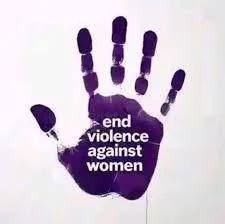Gender-Based Violence: Strategies Rooted in Religious Teachings to Combat the Scourge
Comment from a Bahá'í Perspective

Women For Change's petition for gender-based violence (GBV) to be declared a national disaster has garnered over one million signatures. The writer highlights some transformative strategies that can also help to combat GBV during the 16 Days of Activism and beyond.
Image: Supplied
As we observe, from 25 November to 10 December, the 16 days of Activism Against Gender-Based Violence, it is timely to look into the possible strategies to prevent the epidemic of violence.
In the Bahá’í view, in order to end violence, “Alongside critical changes in the legal, political and economic architecture slowly taking shape, the development of individuals' moral and spiritual capabilities is an essential element in the as yet elusive quest to prevent the abuse of women and girls around the world”.
It is essential to deal not only with the outward and legal aspects of the problem, but also with the inward dimension that concerns the cultural, moral, and religious spheres of life. There is a need to focus simultaneously on dealing with violence against women and girls, and with equal, if not greater, attention on preventing that violence.
According to the statement of the Bahá'í International Community, “Efforts to eradicate the epidemic of violence against women and girls must proceed from and be reinforced by every level of society from the individual to the international community. However, they must not be limited to legal and institutional reforms, for these address only the manifest crime and are incapable of generating the deep-rooted changes needed to create a culture where justice and equality prevail over the impetuousness of authoritarian power and physical force”.
It is a requirement of justice that everyone is treated equally and with dignity. But this has often not been the case when treating women – one half of the world’s population. The conventional beliefs that women are inferior to men make them easy targets for anger, frustration, and violence. The effect of the persistent denial to women of full equality with men, whether in the family setup or in some belief systems, further sharpens the challenge of dealing with violence.
Bahá’u’lláh, the founder of the Bahá'í Faith, states: “Women and men have been and will always be equal in the sight of God". And according to the Bahá’í Writings, the soul has no gender, and the social inequities that may have been dictated by the survival requirements of the past cannot be justified at a time when humanity stands at the threshold of maturity.
The belief and practice of the equality of men and women can transform relations within our families and communities, allowing each person to fully develop his or her unique gifts and talents and to contribute to the well-being of their families and society.
Preventing violence against women and girls requires a partnership between men and women. Likewise, responsibility for the changes that will bring about gender equality rests with both.
The role of following moral and spiritual principles, that facilitate the shift in values required to put into practice gender equality and justice towards all cannot be overemphasised. There is a need for a profound adjustment in humanity's outlook, guided by spiritual principles, to prevent violence. As the Bahá'í International Community says: “Indeed, it is in the recognition of the oneness of the human family that hearts will soften, minds will open, and the attitudes of men and women will be transformed”.
For feedback please contact: tshwane@bahai.org.za; or call 076 582 3879
Websites: www.bahai.org, www.bahai.org.za